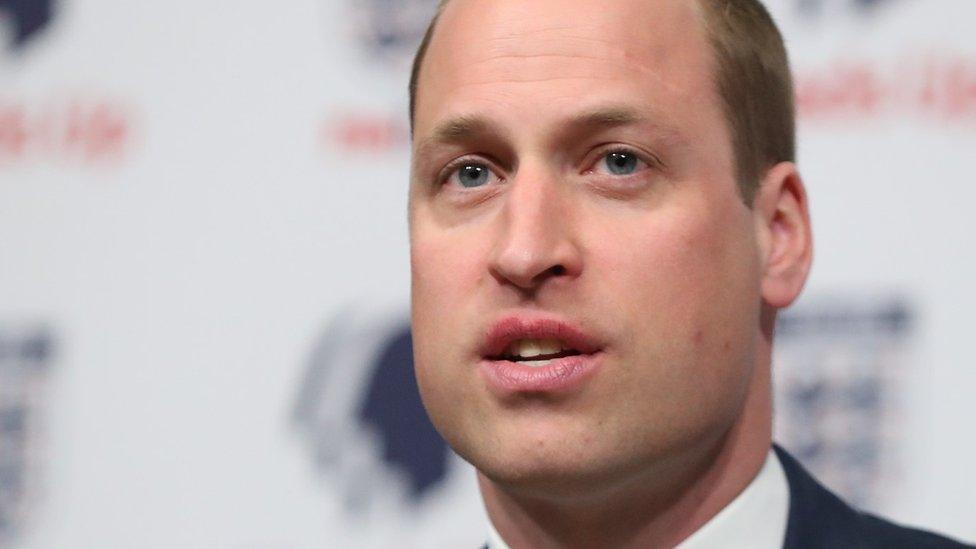LGBT+ History Month: What it means to 'come out'
- Published
- comments
WATCH: 'When I was your age it was illegal to be gay'. Teens and famous LGBT figures share their coming out stories
It's LGBT+ History Month, which is a time to promote the history and celebrate the lives of lesbian, gay, bisexual and transgender people. The + is an inclusive symbol to mean 'and others' to include people of all identities.
This year is the 50th anniversary of the very first Pride march in the UK, where around 2000 people gathered in London to march from Hyde Park to Trafalgar Square.
But for some people, having their sexual or gender identity celebrated or accepted hasn't always been easy, and being gay in the UK was once illegal.
For many people it's still very difficult to talk openly about their sexuality because of fear of what people might say or think.
However, due to changes in laws and attitudes, life has become much easier for the LGBT+ community - although in some places there is still work to be done.
Coming out of the closet, often shortened to coming out, is when a person shares with others that they are lesbian, gay, bi and/or trans (LGBT).
Coming out can be very different for everyone and it can take some time to get to a point where someone feels comfortable and confident enough to tell other people.
'Our coming out stories'
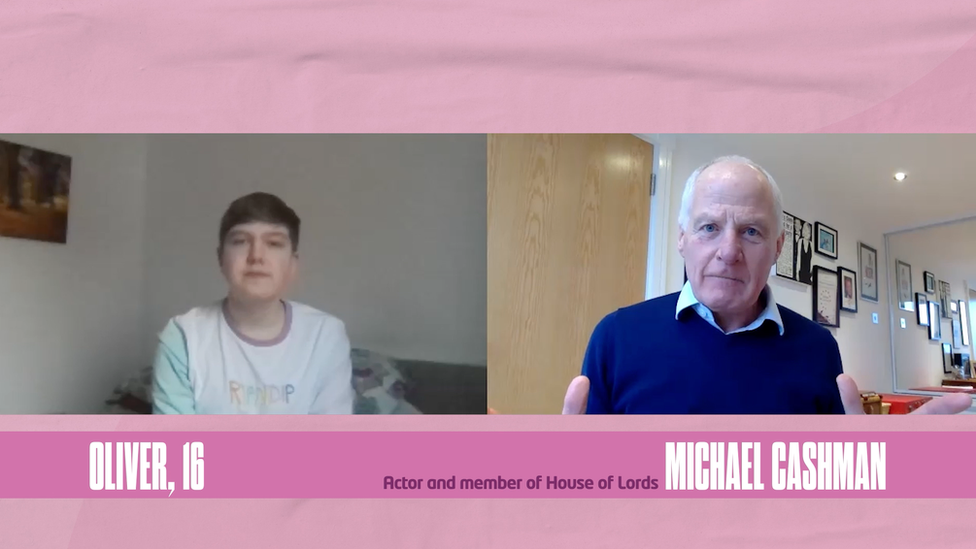
Oliver (left) spoke to actor and member of the House of Lords, Michael Cashman, (right) about his coming out experience
In 2021, Newsround spoke to teenagers Lilly, Oliver and Liv and influential LGBT+ figures Michael Cashman, Lady Phyll and Sue Sanders to find out how different it is for a young LGBT+ person to come out now compared to over 25 years ago.
Oliver, aged 16, spoke to actor and member of the House of Lords, Michael Cashman, about how he came out. He explained that "I first told my Mum and she told me that she'd always known that I was gay. And then I made the decision to just post about it on Instagram and tell literally everybody I knew.
"Loads of people were like 'oh my gosh, I'm so happy for you', but a lot of people also treated me differently."
Michael told Oliver that what he did "took real courage" and that "in the United Kingdom it's still difficult to turn around to family and friends because sometimes we worry about what they will say...but becoming yourself without any pressure from anyone is so important".
It was completely illegal to be gay. You had no protections, you could be sacked [or] kicked out of your family, your home.
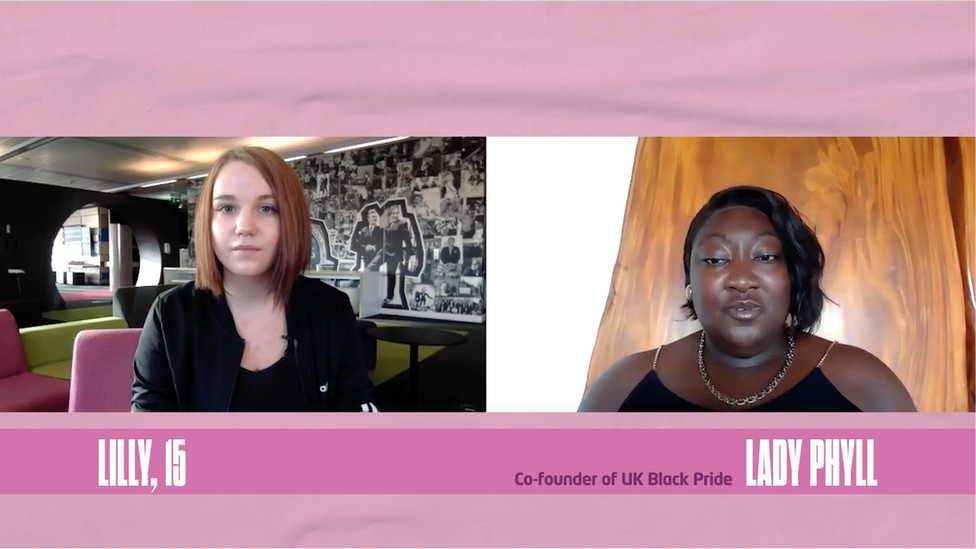
Lilly (left) and the Co-founder of UK Black Pride, Lady Phyll (right) talked about their very different coming out stories
Lilly, aged 15, spoke to Lady Phyll, the co-founder of UK Black Pride, about her coming out experience and said: "I asked my Mum to come up into my room and I said 'I like girls not boys' and she was really excited about it.
"And a few minutes after, I told my Dad and he had to process it a little bit but he's completely fine with it."
But for Lady Phyll, her experience was very different. She told Lilly: "I came out over 25 years ago. I come from a very strict Christian background so letting my mother and father know was probably the worst sin that I could've done.
"My mother was absolutely distraught, she didn't speak to me. I also lost friends.
It was a difficult time of feeling quite lonely and isolated.
"Back in the day there was a lot of discrimination, not just around homophobia or biphobia, but also racism. So I was not just dealing with the issues of coming out, but I was dealing with the issues of being a young woman who was black and also identified as a lesbian.
"There was a lot of stigma and shame, but also culturally being from an African family there are laws in Ghana which criminalises same-sex relationships. That's why my parents couldn't and didn't want to understand".
Responding to Lady Phyll's story, Lilly said it makes her "feel really angry that the LGBT community was treated so poorly in the past".
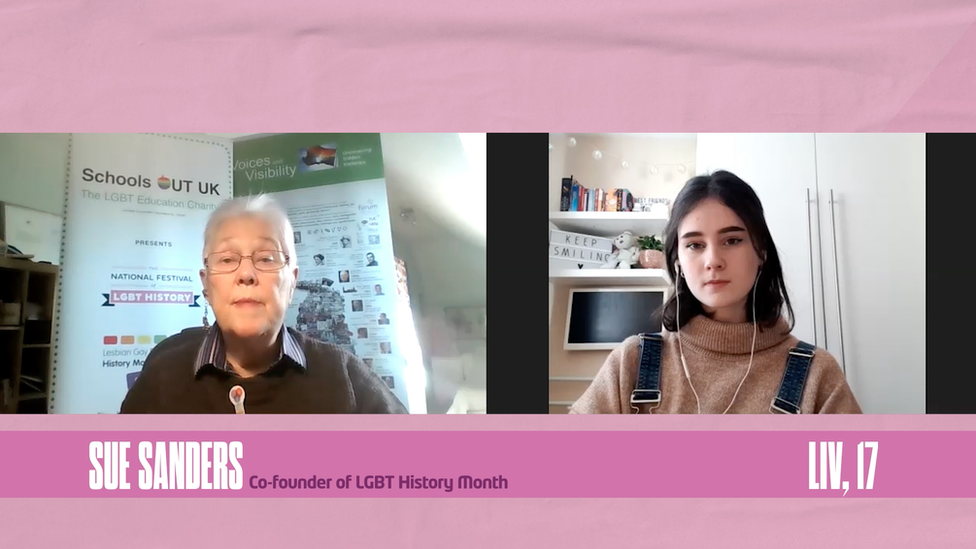
Liv (right) and co-founder of LGBT History Month, Sue Sanders, (left) discussed how life has changed for the LGBT community
Liv, 17, spoke to Sue Sanders, the co-founder of LGBT History Month, and said: "I didn't explicitly come out with a label, I just told [my parents] that I like girls.
"I feel there's so much pressure on young people to label themselves if they act or feel a different way. It's just who I am and my family don't see me as any different."
Sue told Liv that when she was growing up "lots of schools didn't mention LGBT issues at all". It wasn't until 2003 that the law changed which meant schools were allowed to teach LGBT history.
Liv responded by saying: "Had I been who I am in the past, I probably would've been too scared to say anything".
A history of gay rights
WATCH: It was a 'very lonely' life when being gay was illegal (August 2017)
For hundreds of years LGBT+ people have struggled to be accepted and treated the same as people who are not LGBT+.
They have been oppressed and even killed because of who they have feelings for or what gender they identify as.
There were laws that stopped gay people from having the same rights as people who were not gay. For example, gay people couldn't get married or adopt children.
Up until 1967, being gay was a crime and gay and bisexual men could face a maximum sentence of life in prison if they broke the law around homosexuality.
But since then, a lot has changed in the UK - including the laws and attitudes in society.
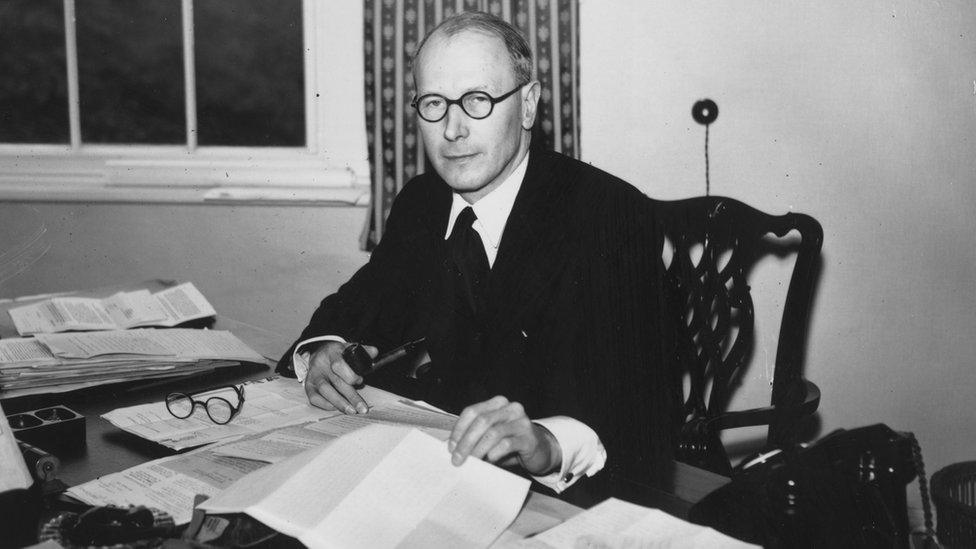
This man, John Wolfenden, led the group which made recommendations to the government about how the law should be changed
1967 - The law was changed in England and Wales in 1967 which allowed two men to be in a relationship together without the fear of being arrested. It wasn't until later that the law changed in Scotland (1980) and Northern Ireland (1982).
Even though this happened, there were still many laws in place at the time which meant that gay people did not have the same rights as people who were not gay.
More gay men were arrested after 1967 for things which they would not have been arrested for if their partner had been a woman.
1969 - A series of demonstrations in New York called the Stonewall riots started after the police raided a bar called the Stonewall Inn, which was a popular place for gay people to hang out. It is said to be the start of the movement of people fighting for gay rights in the US.
1988 - A law called Section 28 was introduced which meant that teachers were not allowed to 'promote' gay relationships in schools. Many people argued that this prevented teachers from talking about gay relationships. It wasn't until 2003 that this was overturned.
2000 - A law was changed which allowed lesbian, gay and bisexual people to be in the armed forces.
2002 - A law was changed to allow gay people (and also unmarried couples) to adopt children.
2003 - The ban on 'promoting' homosexuality in schools (Section 28) was overturned.
2004 - This year marked the start of civil partnerships for gay people. This meant that they had similar rights to people who were married, but civil partnerships are not exactly the same as marriage. Some people did not think it was good enough and that gay people should be allowed to get married.
2008 - It became illegal to encourage homophobic hatred.
2013 - Gay marriage was made legal in England and Wales, and later in Scotland.
2020 - People of the same sex are allowed to get married in Northern Ireland after a change in the law.
WATCH: Why is learning about LGBT+ history important?
In 2017, Peter Tatchell - a gay rights campaigner - told Newsround: "We have made fantastic progress. Compared to two decades ago, Britain is almost a different country. All the main anti-gay laws have been abolished. We are now one of the best countries in the world for gay equality."
"Public attitudes are much more supportive, although there are still families who reject their gay children. We still have too much homophobic hate crime, many kids are still bullied and a lot of schools don't have an anti-bullying programme that specifically addresses anti-gay issues.
"There is big progress, but more needs to be done."
Today it is illegal to discriminate against somebody because of their sexuality, although many LGBTQ+ people face discrimination in their daily lives.
Peter says: "We want to get to a situation where no one cares what sexuality you are; where we accept the person and their right to love whoever they wish - male, female, both or neither."
- Published6 June 2021
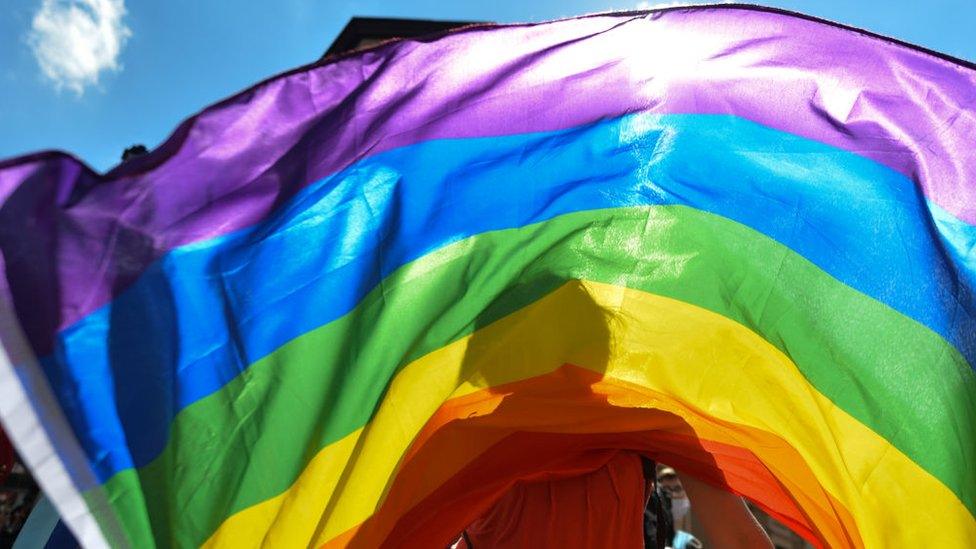
- Published24 January 2021
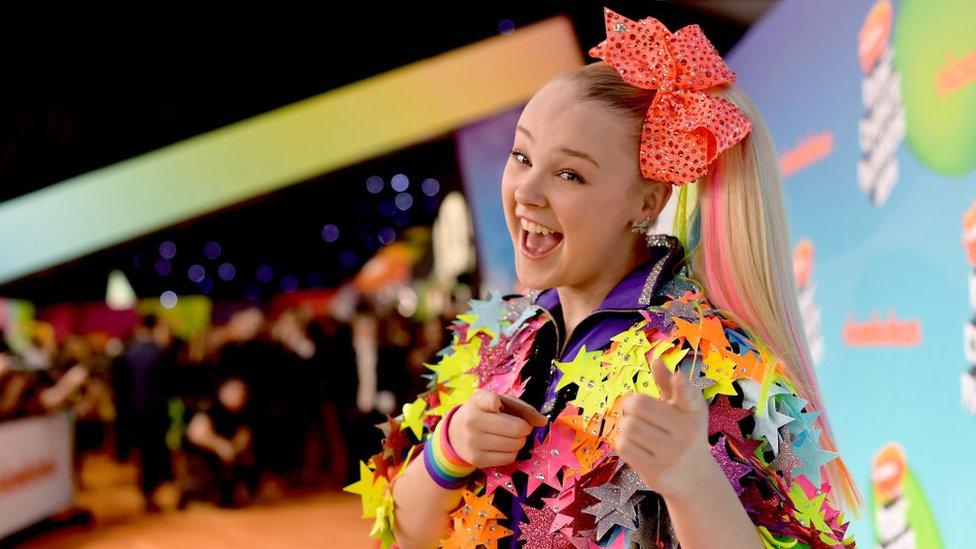
- Published27 June 2019
